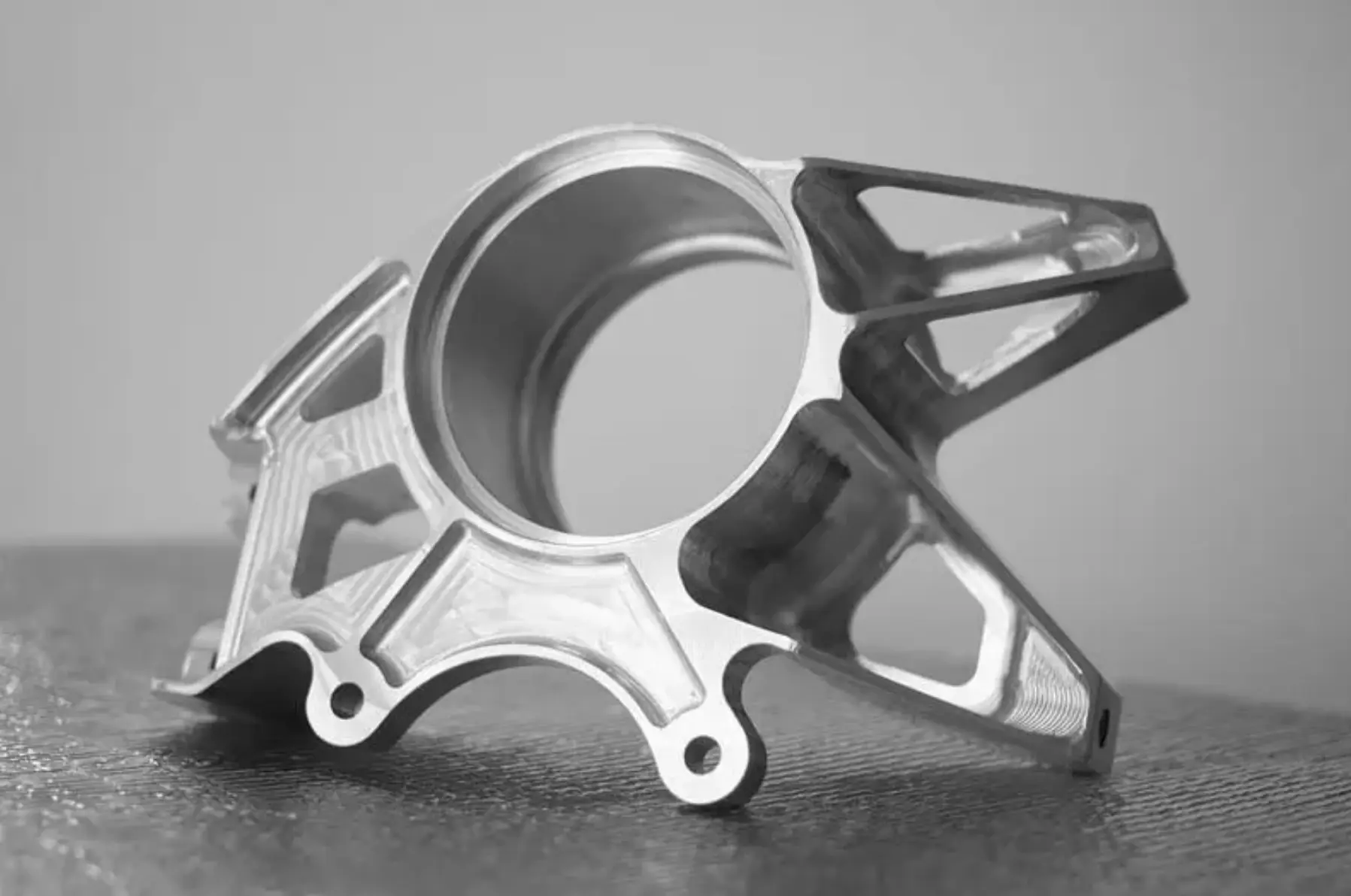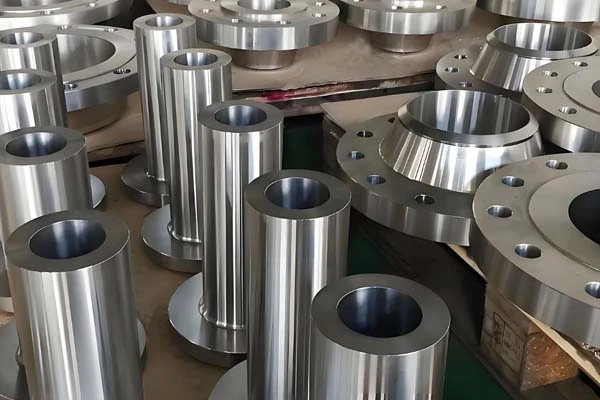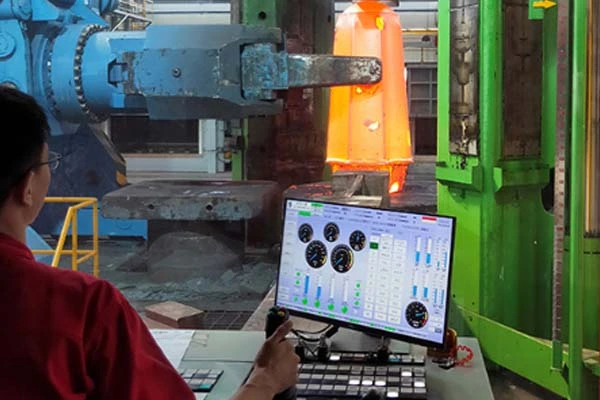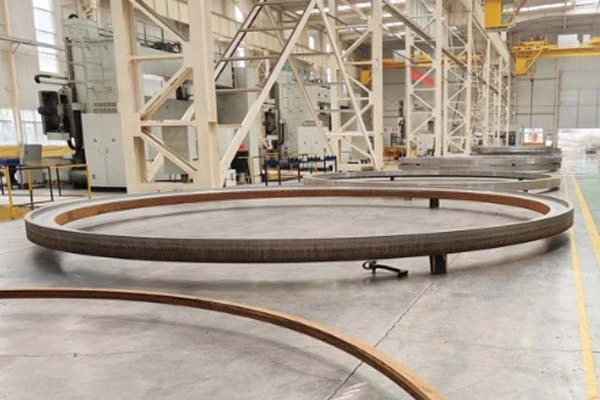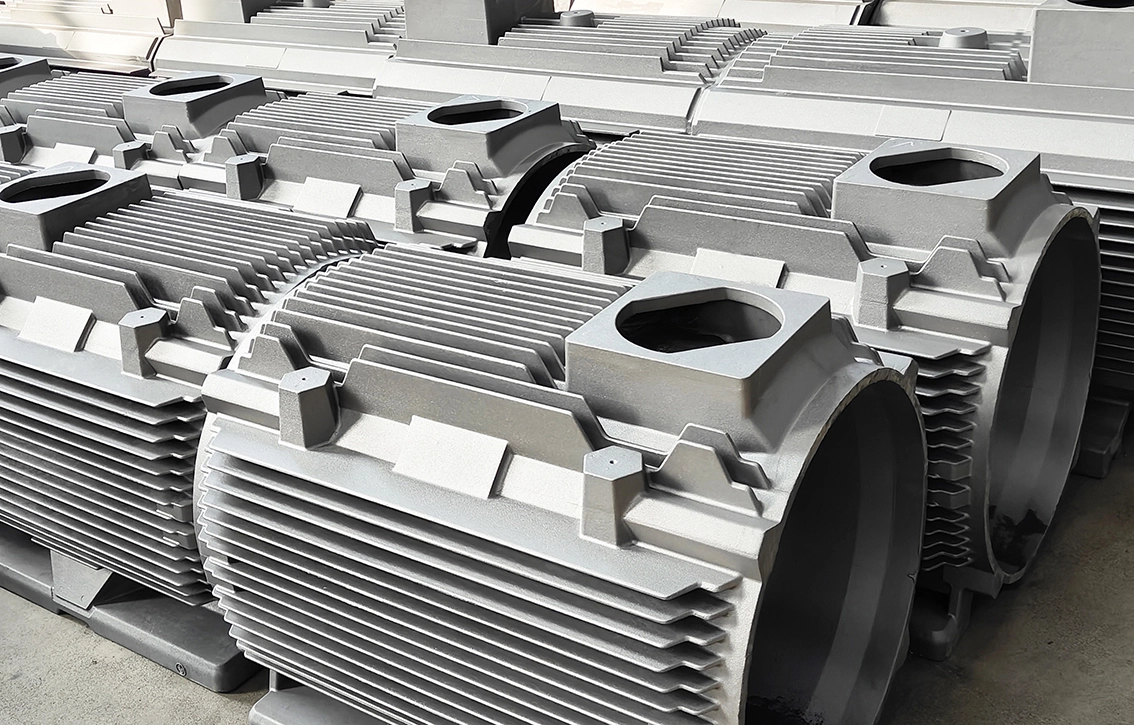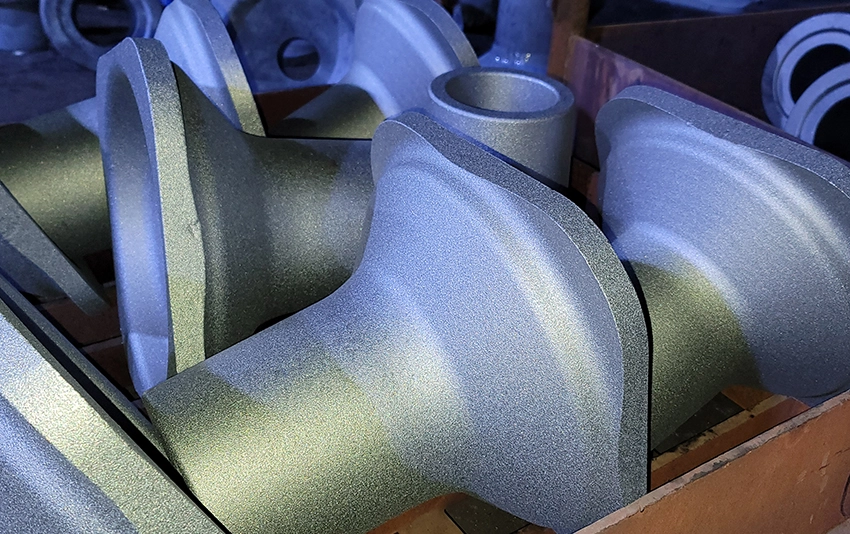Advantages of Aluminum Forging
Lightweight: Aluminum is a lightweight material, which is one of the primary reasons it is favored in aerospace, automotive, and other industries where weight reduction is crucial.
High Strength-to-Weight Ratio: Forged aluminum parts are stronger and more durable than cast or machined parts of similar weight, making them ideal for applications requiring strength and low weight.
Corrosion Resistance: Aluminum naturally forms an oxide layer that protects it from corrosion, making it highly resistant to environmental conditions like moisture, salt, and chemicals.
Durability: Forged aluminum parts are tougher than cast aluminum, exhibiting high resistance to wear, fatigue, and impact.
Customization: The forging process allows for the creation of parts with complex shapes, tight tolerances, and excellent surface finishes, reducing the need for extensive post-processing.
Energy Efficiency: Since aluminum forgings require less material to achieve high strength, the overall energy consumption can be reduced in many applications.
Applications of Aluminum Forging
Aluminum forgings are used in a broad range of industries due to their lightweight and durable nature. Below are some key industries and applications where aluminum forgings are commonly used:
1. Automotive Industry
Aluminum forging plays a critical role in automotive manufacturing due to its ability to produce lightweight components that enhance vehicle performance and fuel efficiency.
Engine Components: Aluminum forgings are widely used to make engine blocks, cylinder heads, crankshafts, connecting rods, and pistons. These components require high strength and durability while minimizing weight.
Suspension Parts: Forged aluminum control arms, spindles, knuckles, and steering components are commonly found in performance vehicles, as they offer reduced weight without sacrificing strength.
Wheels: Aluminum alloy wheels are forged for high performance and lightweight, which helps improve fuel efficiency and handling while maintaining strength and durability.
Transmission Components: Gear shafts, transmission housings, and clutch components made from aluminum forgings offer reduced weight while withstanding high mechanical stresses.
Benefits in Automotive:
Weight Reduction: Aluminum forgings help reduce the overall weight of vehicles, improving fuel efficiency and performance.
High Strength: Aluminum parts are strong enough to handle high-stress automotive applications such as engine blocks, suspension, and wheels.
Improved Performance: Lightweight forged aluminum parts enhance handling, acceleration, and overall vehicle dynamics.
2. Industrial Equipment
Aluminum forgings are also commonly used in the manufacturing of industrial machinery, where strength, durability, and resistance to wear are critical.
Hydraulic Cylinders: Forged cylinder heads, pistons, and rods are used in hydraulic systems for heavy-duty machines like cranes, forklifts, and excavators.
Pump and Compressor Components: Forged aluminum pump housings, valves, and compressor parts are used in industrial machinery for their durability and resistance to fatigue and corrosion.
Transmission Components: Forged gears, shafts, and bearings are used in various industrial equipment to transmit power efficiently while withstanding heavy loads and frequent operation.
Structural Components: Frames, brackets, supports, and casings in machinery and industrial systems are forged from aluminum to provide a lightweight but strong foundation.
Benefits in Industrial Equipment:
Durability: Aluminum forgings are highly durable, able to withstand the heavy loads, wear, and stress commonly found in industrial machinery.
Precision: The forging process allows for tight tolerances, ensuring that aluminum parts fit precisely in complex industrial systems.
Corrosion Resistance: Aluminum's natural resistance to corrosion makes it ideal for machinery that may operate in humid or corrosive environments.
3. Sports and Recreation Equipment
In sports and recreation, the lightweight and strong properties of forged aluminum are leveraged to create high-performance equipment.
Bicycles: Aluminum alloy frames and components such as handlebars, forks, and cranksets are often forged for reduced weight and increased strength, making them ideal for performance bicycles.
Golf Clubs: Golf club heads, shafts, and handles are commonly forged from aluminum alloys to provide optimal performance, strength, and durability.
Skis and Snowboards: Forged aluminum components are used in ski bindings, snowboard mounting systems, and snowmobile parts for their ability to resist high stress while being lightweight.
Tennis Rackets: Tennis racket frames made from forged aluminum allow for reduced weight without compromising strength and stiffness for better ball control and power.
Benefits in Sports and Recreation:
Lightweight: Aluminum forgings significantly reduce the weight of sporting equipment, improving performance, agility, and comfort.
Strength and Durability: Forged aluminum provides the necessary strength and durability to handle impact forces in sports applications.
Precision: Cold-forged aluminum components have precise shapes and tight tolerances, leading to improved accuracy and performance in recreational equipment.
4. Marine Industry
In the marine industry, aluminum forging is widely used for boat and ship components because of aluminum’s high resistance to corrosion in seawater, lightweight nature, and ability to handle mechanical stresses.
Boat Propellers: Marine propellers, which are subjected to constant impact and wear in saltwater environments, are often forged from high-strength aluminum alloys.
Marine Engine Parts: Cylinder heads, pistons, and connecting rods in boat and ship engines are forged from aluminum to reduce weight and improve fuel efficiency.
Deck Fittings and Hardware: Aluminum forgings are used for hatches, winches, cleats, and other deck fittings that require strength and corrosion resistance in harsh marine environments.
Hull Components: Rudder stocks, brackets, and supports are often forged from aluminum alloys to provide strength and prevent corrosion while reducing overall weight.
b· Corrosion Resistance: Aluminum’s excellent resistance to seawater corrosion makes it ideal for marine applications.
Lightweight: Forged aluminum reduces the overall weight of boats and ships, improving fuel efficiency and performance.
Strength: Forged aluminum parts are strong enough to withstand the stresses encountered in marine environments, such as wave impact and saltwater exposure.
5. Renewable Energy Industry
The renewable energy industry uses aluminum forgings for applications such as wind turbines, solar panels, and hydroelectric equipment.
Wind Turbine Components: Hub assemblies, blades, mounting brackets, and gearboxes are often forged from aluminum alloys to reduce weight while maintaining strength and corrosion resistance.
Solar Panel Racking Systems: Support frames and mounting brackets for solar panels are forged from aluminum to provide the necessary strength and durability to hold panels in place, while also resisting weathering and corrosion.
Hydroelectric Equipment: Aluminum forgings are used in the production of hydraulic turbines, generator shafts, and control systems in hydroelectric power stations due to their corrosion resistance and strength.
Benefits in Renewable Energy:
Weight Reduction: Aluminum forgings contribute to reducing the weight of renewable energy systems, improving efficiency and lowering transportation costs.
Corrosion Resistance: Aluminum’s natural corrosion resistance makes it perfect for equipment exposed to outdoor and environmental conditions.
Durability: Forged aluminum parts are long-lasting and able to withstand the mechanical demands of renewable energy systems.
Conclusion
Aluminum forging is a versatile and efficient process that produces strong, lightweight, and durable components with excellent precision. The material's natural corrosion resistance, high strength-to-weight ratio, and versatility make it ideal for industries such as aerospace, automotive, industrial equipment, sports and recreation, marine, and renewable energy. Aluminum forgings not only provide the necessary performance characteristics but also help reduce costs in the long run due to their durability, lightweight properties, and minimal need for post-processing.
 English
English  Deutsch
Deutsch  français
français  русский
русский  فارسی
فارسی  العربية
العربية  Español
Español  日本語
日本語  한국어
한국어  italiano
italiano  português
português  dansk
dansk  Suomi
Suomi 





